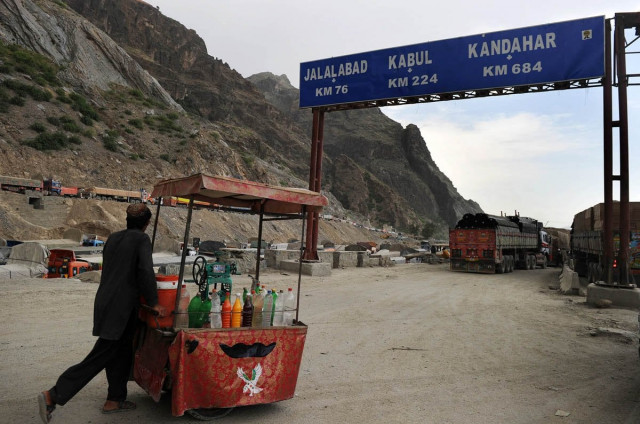Tightened rules: New Pak-Afghan border controls slow trade to a crawl
Businessmen complain of delays and customs duties

The report urged the customs departments of both countries to improve coordination. PHOTO: AFP
A new attempt by Pakistan to secure the once porous frontier is wreaking havoc, with thousands of people and hundreds of trucks forced to queue at Chaman’s ‘Friendship Gate’ until their movements are processed on an electronic system that went online in September.

Traders used to crossing at will now find themselves waiting for hours.
Businessmen like Fazal Karam complain of delays and customs duties eating into their already narrow margins.
“My truck has been left standing on the border for 15-16 days”, the 50-year-old Afghan fodder trader said.
Officials on the Pakistani side have even dug a trench which runs parallel to the border, blocking anyone who might try to circumvent the official checkpoints.
Islamabad -- which has also tightened controls at the other major crossing, the famed Torkham Gate -- insists the new measures are necessary to stop the flow of militants and boost customs revenue.
The Pakistani government estimates that undocumented trade on the border exceeds $2.5 billion annually, costing millions of dollars a month in lost customs duties.
Pakistanis cross it daily to work, regional analyst Rahimullah Yousafzai said, while Afghans cross it to visit family and medical treatment.
Islamabad’s announcement last June that it was planning more checkposts and fencing along the border prompted consternation from Afghan officials.
Abdullah Achakzai, president of Chaman’s chamber of commerce, said the majority of people in the area depended on cross-border trade for their livelihoods.
“Local people who have their shops across the border in Afghanistan, who go in the morning and come back in the evening, are facing serious problems,” Achakzai said. “They waste three or four hours just to cross, how can you do business for half a day?”
With no alternatives — such as long-term visas — available yet, businessmen have resorted to smuggling. Achakzai conceded controls were necessary but must be imposed more fairly.
Published in The Express Tribune, January 11th, 2017.













COMMENTS
Comments are moderated and generally will be posted if they are on-topic and not abusive.
For more information, please see our Comments FAQ